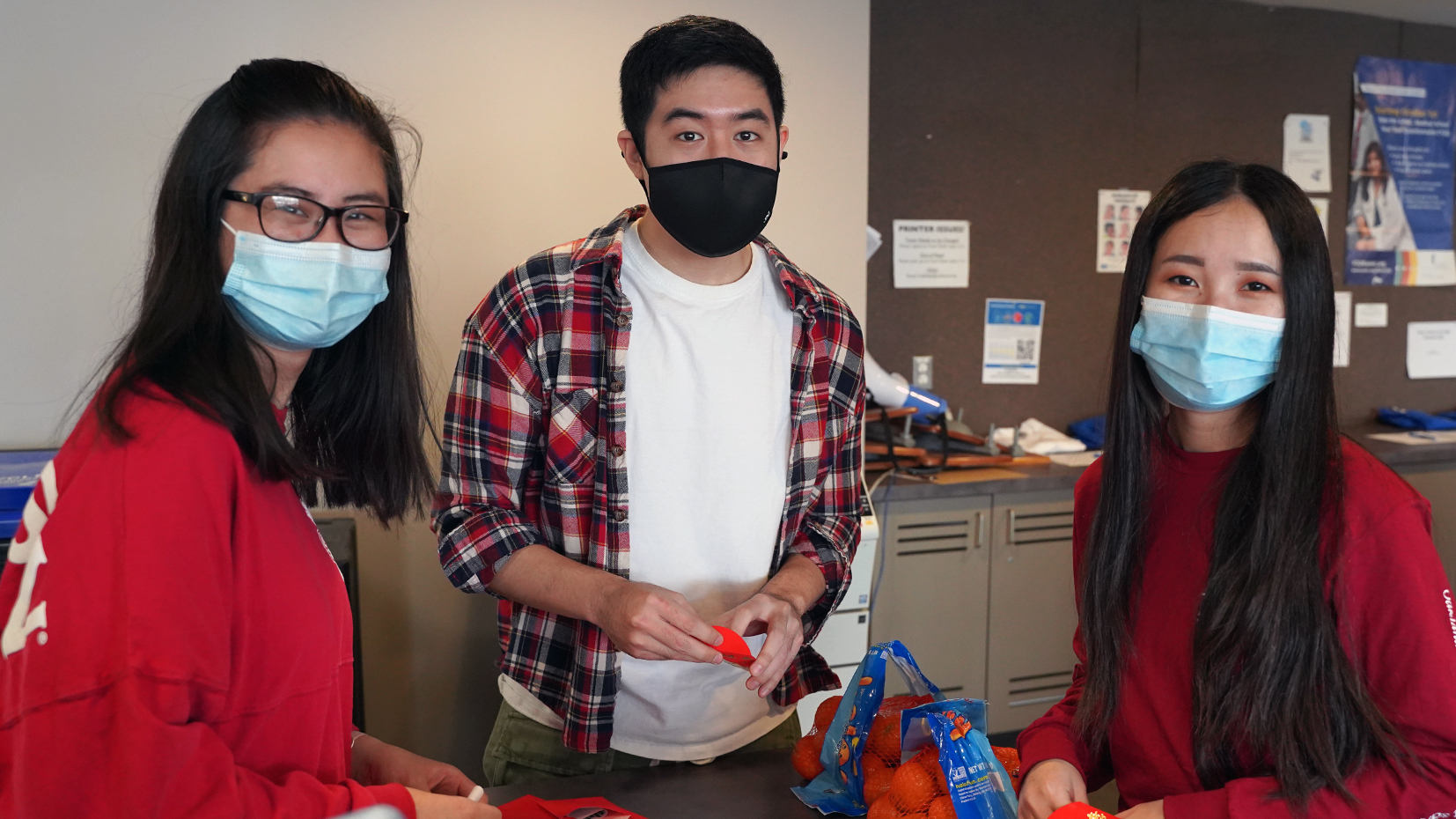
Addressing the unique health challenges of Asian and Pacific Islander American (APIA) communities while promoting cultural awareness are top priorities for one student organization at OUWB.
Asian Pacific American Medical Students Association (APAMSA) is a national organization of medical and pre-medical students that was founded in 1995. The OUWB chapter was started in 2016, and today has about 80 members.
The group focuses on issues that affect the Asian American community, according to Vice President Jenny Nguyen, M2. Such issues include mental health, Hepatitis B, and more.
Nguyen said promotion of cultural awareness and diversity also are important for the group.
“Part of (APAMSA) is representing that diversity that OUWB should have, (while) making sure that the organization can target Asian American communities and better their health in some way,” she said.
APAMSA President Michael Ko, M2 shared similar sentiments, adding that the student organization affords those involved to expose others to cultures to which they may have had limited engagement.
“Having APAMSA as an organization that is distinctly focused on Asian American issues is helpful in that we can have events that are sponsored by our school…and talk about issues that we care about,” Ko said
Signature APAMSA events at OUWB have included Hepatitis B screenings (though cancelled in recent years due to COVID-19) and mental health campaigns.
Ko said the mental health campaigns are all about having people “be more open and sharing their stories…(about) mental health in general.”
In 2020, the group’s mental health campaign was called “Socially Distant but Emotionally Connected: 6 Feet Closer During Quarantine.” The campaign was open to the entire OUWB community and held in conjunction with May’s Mental Health Awareness Month and Asian American and Pacific Islander Heritage Month.
During the two-week campaign, APAMSA featured video stories via social media of OUWB students and faculty reflecting on the impact of COVID-19 on their mental health. The campaign also included daily challenges and inspirational posters featuring OUWB students and faculty.
The goal was to start an open, honest dialogue in the OUWB community with hopes to encourage positive mental health practices as well as peer support during these trying times.
In 2021, the campaign was called “Fighting the Virus. Fighting the Bias.”
The campaign featured members of the OUWB community sharing answers via APAMSA's Facebook page to three questions: How do you feel about the recent hate crime or how has it been affecting you; What changes would you like to see that will address the issues surrounding the recent hate crimes; Do you have any positive advice or tips on how you have endured the past year or for any Asian Americans affected by these tragic events?
Ko said he thinks that difficult conversations, like those about mental health, need to be had in order for progress to be made.
“Knowing that we need to have these conversations is at least one step in the right direction in terms of making longer standing change,” he said.
Nguyen said that with regard to mental health, there’s “such a stigma within the community itself, and I think as health care professionals, maybe in the future, we could break that down even more.”
APAMSA at OUWB also has been adding more social events to its calendar.
In 2022, to mark the Lunar New Year, students from APAMSA honored tradition by stuffing red envelopes (hóngbāo) with chocolate gold coins to giveaway with tangerines (a symbol of happiness and good fortune) to other students in the student lounge of OUWB’s O’Dowd Hall.
Ko also said it was designed to “have people know what the celebration is about, (and) what the history is.”.
Ko and Nguyen both said they have benefited from being part of APAMSA.
Ko said he finds it rewarding to be “able to make at least a little bit of a change that maybe you want to see or contribute to the community.”
“That's an important aspect to carry us into positions where inevitably we're going to be not just be doctors, but important members of whatever community we're serving,” he said.
Nguyen said her experiences with APAMSA will help her understand the unique health needs of Asian American patients.
“Just having that diversity and experience will better me as a physician,” she said.
To request an interview, visit the OUWB Communications & Marketing webpage.
NOTICE: Except where otherwise noted, all articles are published under a Creative Commons Attribution 3.0 license. You are free to copy, distribute, adapt, transmit, or make commercial use of this work as long as you attribute Oakland University William Beaumont School of Medicine as the original creator and include a link to this article.

